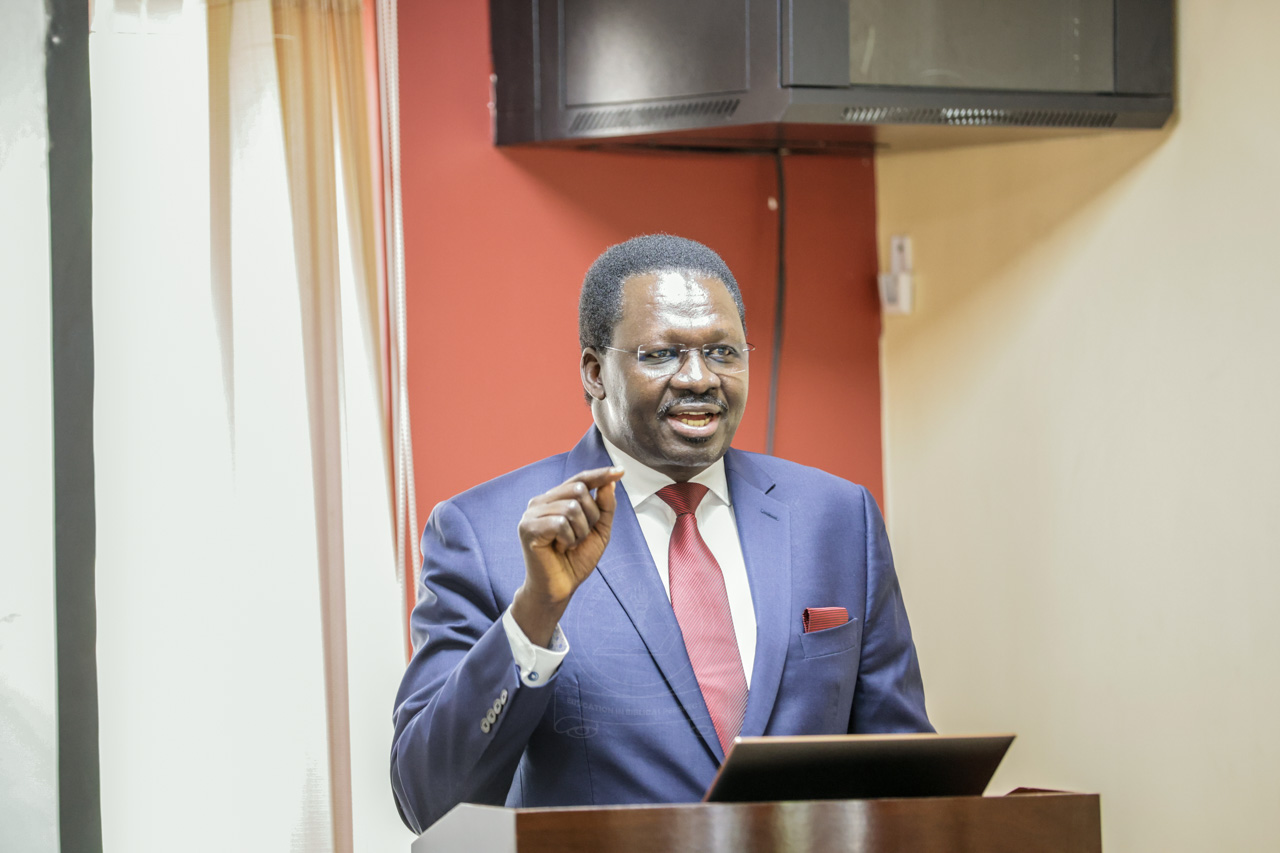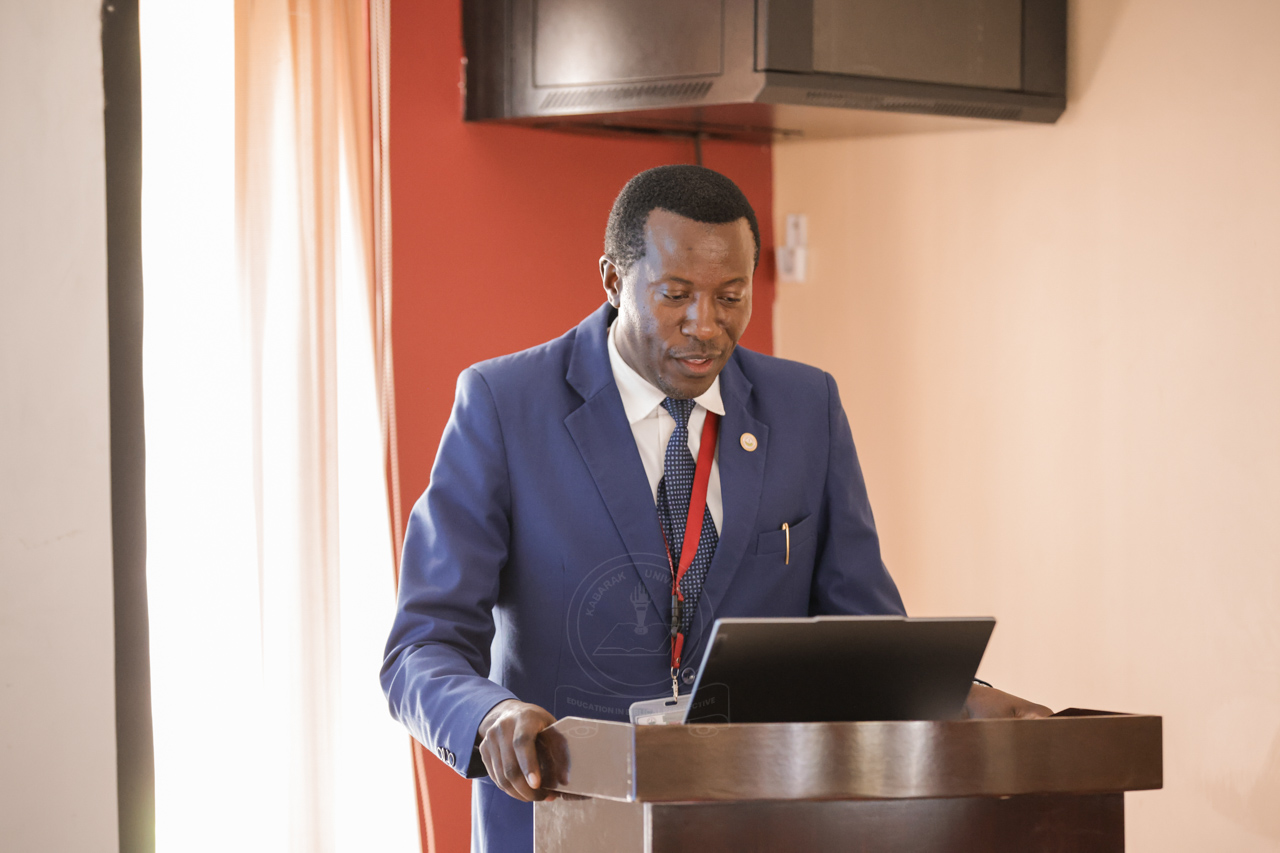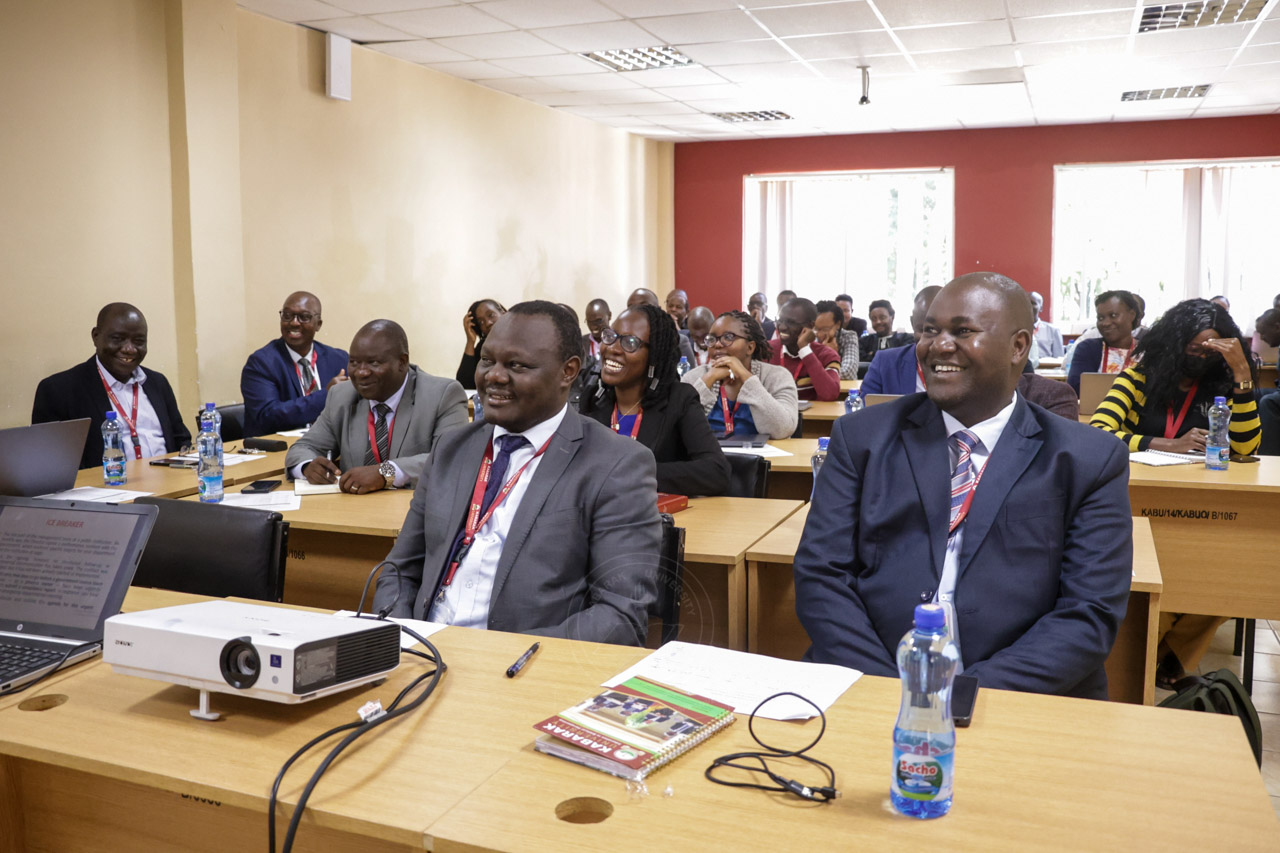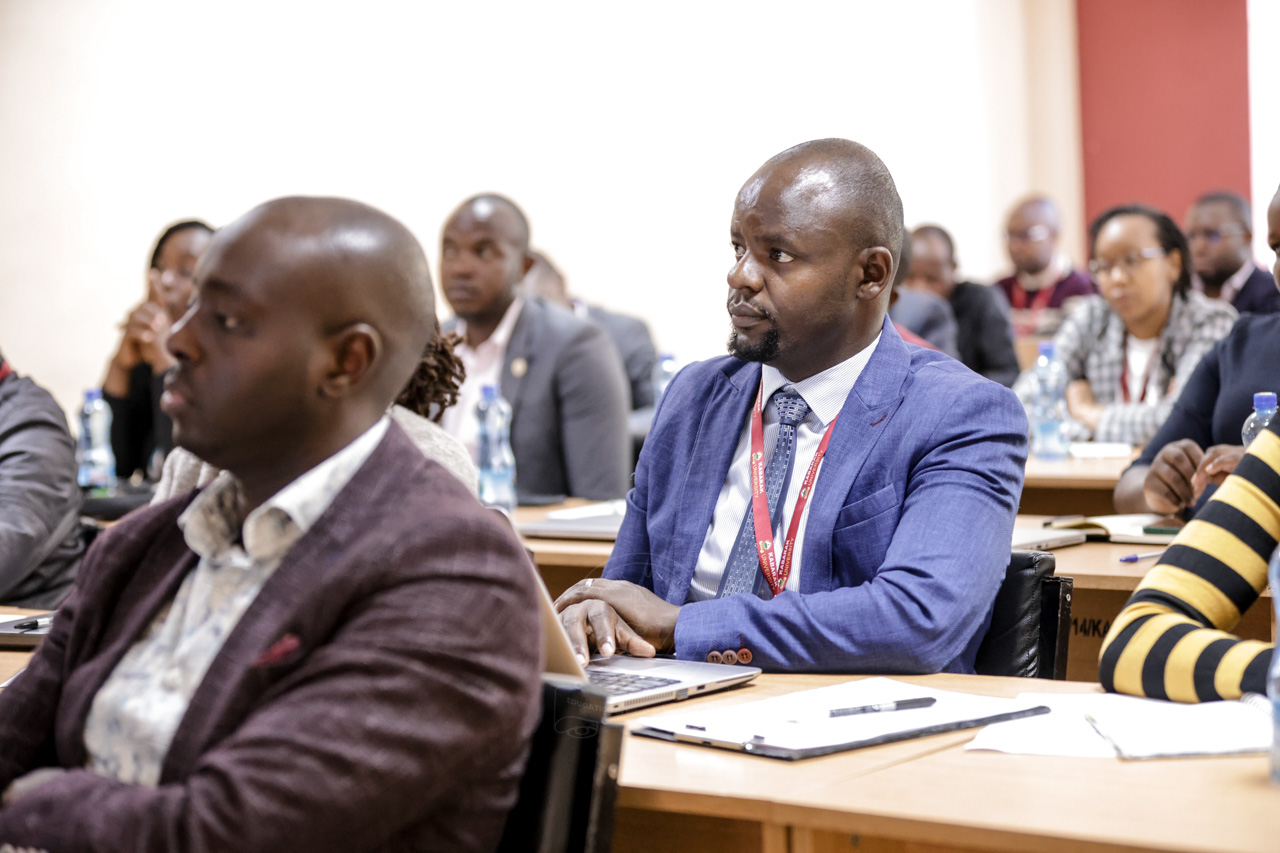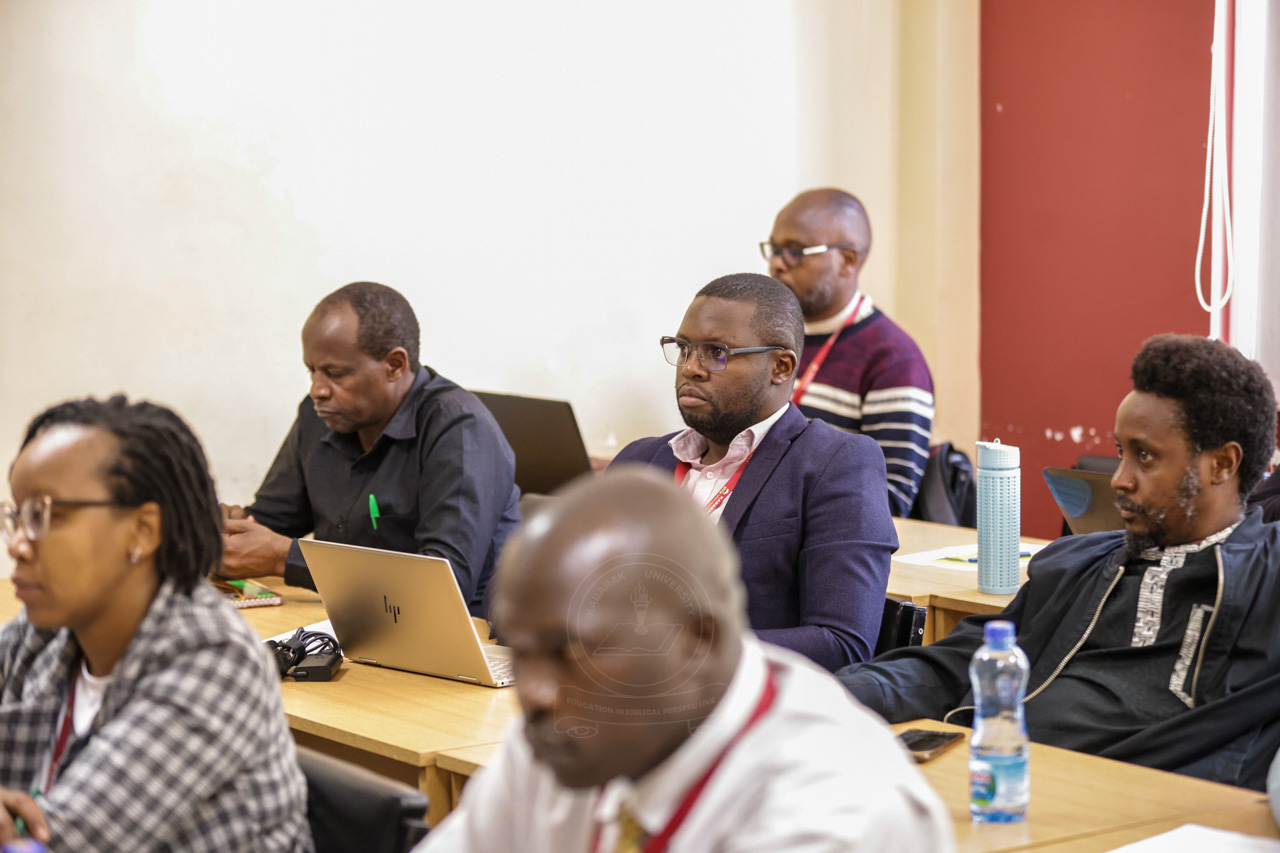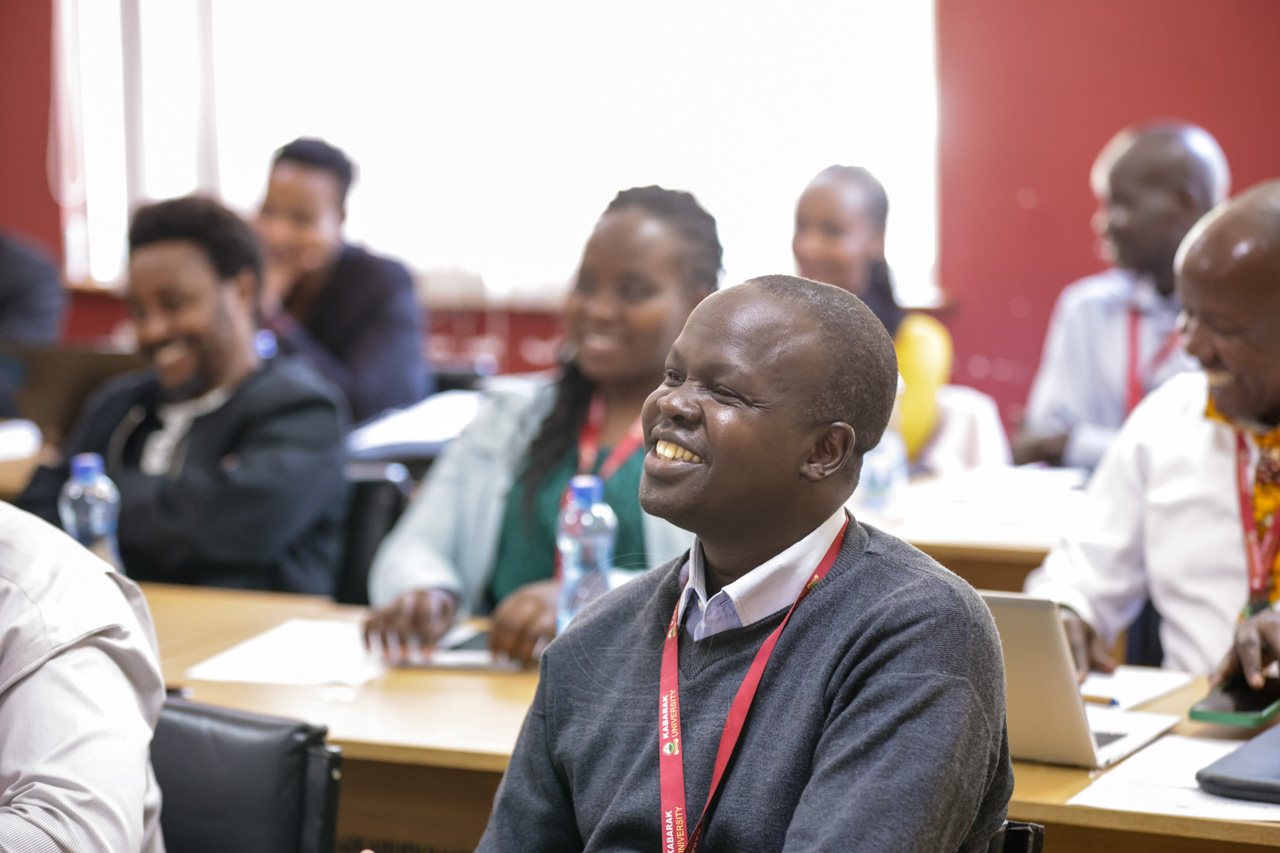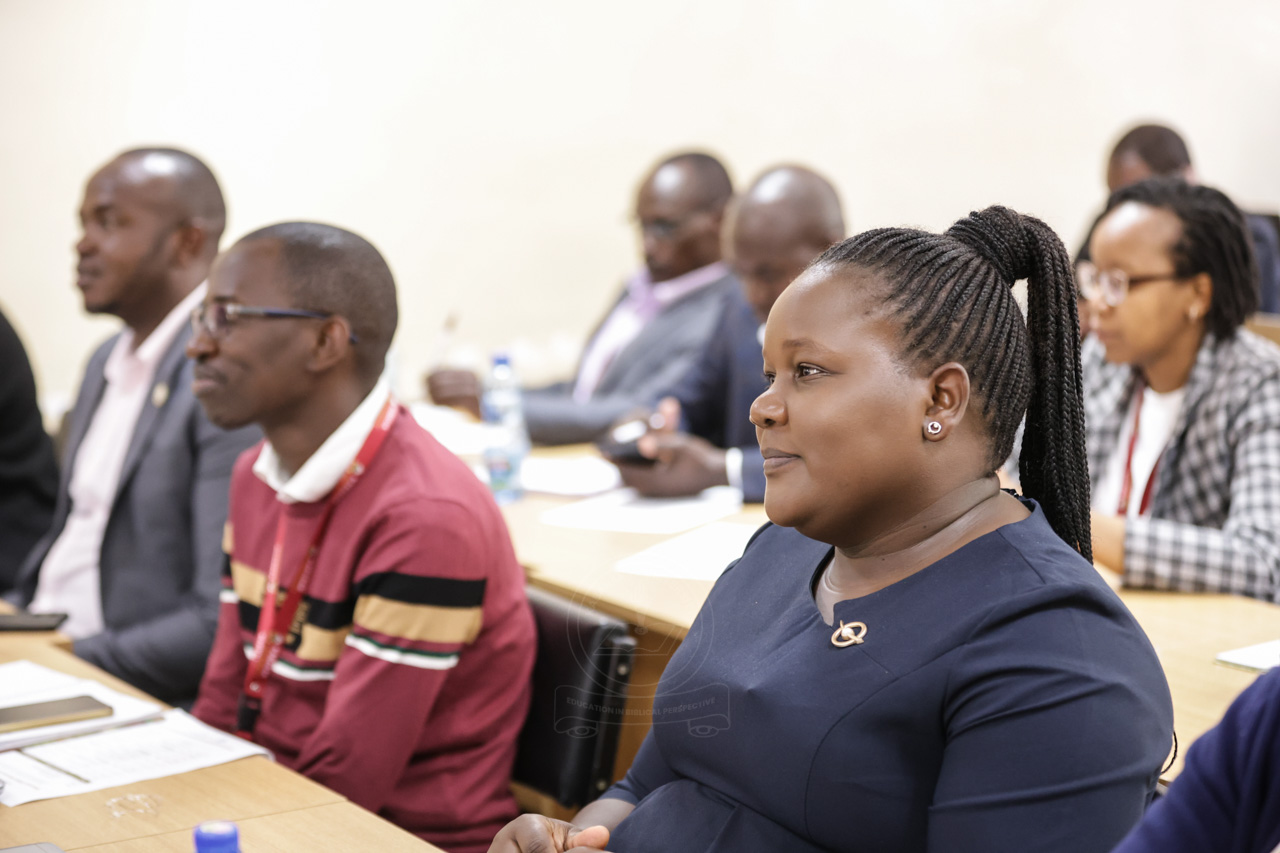Kabarak University, through its Directorate of Quality Assurance and Institutional Planning, hosted a pivotal Performance Contracting and ISO 9001:2015 Awareness Training for New Process Owners on May 22, 2025, at the Kabarak University Online (KABUO) Conference Room. The high-level training brought together newly appointed process owners, facilitators, and the University Management Board (UMB), highlighting our dedication to ongoing enhancement, responsibility, and excellence on a global scale.
The day’s program commenced with an opening devotion led by the Ag. University Provost, Rev. Justus Mutuku, followed by remarks from the Deputy Vice-Chancellor (Academic and Research), Prof. John Ocholla, who introduced Prof. Ronald Chepkilot, DVC (Administration and Finance). Prof. Chepkilot gave a brief address and then welcomed the Vice-Chancellor, Prof. Henry Kiplangat, whose powerful remarks officially opened the training session.
In his opening address, Prof. Kiplangat emphasized that this training marked a significant milestone in Kabarak University’s journey toward institutional excellence. He praised the efforts of the Office of the Management Representative and the Directorate of Quality Assurance and Institutional Planning for spearheading the initiative, and extended heartfelt appreciation to the facilitators, participants, and support staff.
“This initiative is not only timely but strategic,” the Vice-Chancellor stated. He highlighted that the training aligns directly with Clause 7.2 of the ISO 9001:2015 standard, which requires organizations to ensure that individuals performing work are competent based on education, training, and experience. He further referenced Clause 4.4.1, which emphasizes the identification and management of processes critical to a Quality Management System (QMS).
Addressing the new process owners, the Vice-Chancellor stated:
“You occupy a pivotal position in driving the quality agenda of our University. Your leadership has a direct and lasting impact on the quality of services we offer, the efficiency of our operations, and the integrity of our outcomes.”
He reiterated that process owners are not merely responsible for compliance but are called to be custodians of quality—leading measurable outcomes, fostering innovation, and advancing the mission of Kabarak University. Drawing from 1 Corinthians 4:2, he reminded them,
“Now it is required that those who have been given a trust must prove faithful.”
The Vice-Chancellor concluded his remarks by affirming the University Management’s commitment to supporting every process owner, encouraging active engagement and collaboration during the training.
“Use this opportunity to strengthen your capacity for quality leadership,” he advised, before officially declaring the session open.
The training featured expert-led presentations and interactive discussions. Dr. Edwin Akumu provided an insightful overview of performance contracting within the context of the University’s 2022–2026 Strategic Plan, stressing the importance of setting targets, monitoring progress, and aligning departmental performance with national education goals.
Facilitators Mr. Oscar Gidei, Dr. Richard Kagia, and Ms. Ogeto Kerubo guided participants through ISO 9001:2015 clauses 4 to 10, exploring core principles like risk-based thinking, process interaction, operational planning, performance evaluation, and continuous improvement.
Afternoon sessions led by Dr. Caroline Chepkirui addressed the Academic and Administrative Procedure Manuals, equipping new process owners with tools to standardize operations and enhance accountability across all university units.
The training concluded with a dynamic Q&A session and reflections led by Dr. Titus Suge, followed by a closing prayer by the University Chaplain. The message throughout the day remained clear: Kabarak University is a beacon of quality, excellence, and faith-driven leadership.
As Kabarak University continues to champion innovation and quality education founded on Biblical Christian values, the empowerment of its process owners remains central to achieving its institutional vision and mission.



